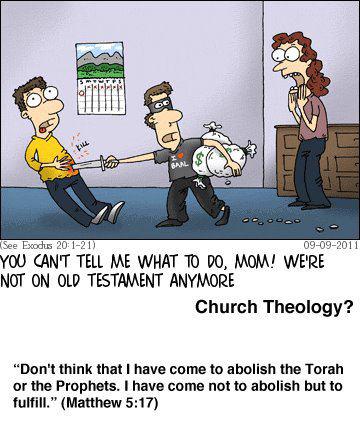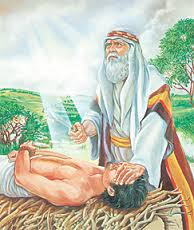The Holy Spirit is sent by the Father and the Son to work in our hearts, and to reprove the world of sin. He fills the christian hearts with his presence, and he is a big aid for us to live holy lives and to enable us to be good disciples who spread the true word of God to others. The Holy Spirit helps us to understand the scriptures and the deep things of God, and he also gives us spiritual gifts so that we can build up ourselves and others in the body of Christ. The Holy Spirit is described as a person who has a will, who hears, speaks, has feelings, wisdom, and who has a relationship with us. The Bible came about thanks to holy men of God who wrote down the message of God through inspiration of the Holy Spirit.
Acts 2:38 Then Peter said unto them, REPENT, and be baptized every one of you in the name of Jesus Christ for the remission of sins, and ye shall receive the gift of the HOLY GHOST.
If the Holy Spirit is exactly synonymous with either God/the Father/Jesus Christ, then we must ask ourselves why those names are not used instead? The Holy Spirit seems to be different from the Father and Jesus Christ, but also the same as though share the same source. Only the trinity could solve something like this, because if 1) God the Father, 2) God the son and 3) God the Holy Spirit, are different persons in the same godhead (and there is only one God), then it all makes sense. We could also visualize that only the Father and Jesus Christ are in the godhead, with the Holy Spirit as another manifestation of them, which boils down to the almost the same thing. When the Holy Spirit is operating on earth, then it’s God operating.
It might feel like a burden to understand exactly how the persons in the godhead work in their divine state and in the trinity, but we don’t have to understand exactly how they interact with each other in order to be saved. We only have to accept that these persons/manifestations are in our only God and that they are each called God – 1 pile of sand can be divided into 3 piles of sand, and back again. God can be in several different locations at the same time, and the Holy Spirit can be in each of us christians at the same time. Neither do we have to understand exactly how a car engine works in order to drive, even if it’s for our benefit if we have some knowledge about it – like; where it’s placed, what the purpose is, how to make maintenance, what the indications are that something is wrong, etc. At least we know that the inventor/manufacturer knows how it works, and he knows it in great detail and has it all under control.
There is a theory put forth in some of the apocrypha/lost books which suggests that demons/evil spirits have a source in the fallen angels that we can read about in Genesis (the sons of God), och who came down to earth to produce gigantic babies (nephilim) together with certain females. When the fallen angels eventually died, they are said to have left evil spirits of themselves which could trouble human beings – which we have some examples of in the Bible. If this is true, and if the Holy Spirit works in a similar way (naturally with a source in God), then this could explain why Jesus had to be glorified and leave the earth before the Holy Spirit could make an entrance and fill our hearts. If demons/evil spirits can be called Satan (precisely for being manifestations of Satan), the Holy Spirit could be called God for the same reason – because he is a manifestation of God. This, however, is only speculation about the invisible and spiritual world, and it’s not something that is essential for our salvation to know about – as long as we worship the only true God. It’s for instance utterly important to accept that Jesus is the IAM, and the word that was with God and who was GOD and lived among us in flesh. Read more about the trinity here.
If Jesus and the Holy Spirit are synonymous, then it would not make sense to have different names for the very same person, and it would be difficult to understand why Jesus refers to the Holy Spirit as another Comforter (helper) who can’t make his entrance into this world unless Jesus makes an exit. The Holy Spirit is not referred to as “it” (as some kind of a neutral force) but the pronoun “he” is used. The Holy Spirit will testify of Jesus and glorify him, and if Jesus is not God it would have been more logical to let the Holy Spirit glorify GOD. Especially since we can read in Isaiah 42:8 that God doesn’t share his glory with anyone. The Holy Spirit will speak what he hears, and this is another indication of that he is separate from the one who tells him what to speak. If the Holy Spirit is the same as the Father, it’s strange that we can read that he will proceed from the Father, because that makes them separate:
John 16:5 But now I go my way to him that sent me; and none of you asketh me, Whither goest thou?6 But because I have said these things unto you, sorrow hath filled your heart.7 Nevertheless I tell you the truth; It is expedient for you that I go away: for IF I GO NOT AWAY; THE COMFORTER WILL NOT COME UNTO YOU; but if I depart, I will send him unto you.8 And when he is come, he will reprove the world of sin, and of righteousness, and of judgment:9 Of sin, because they believe not on me;10 Of righteousness, because I go to my Father, and ye see me no more;11 Of judgment, because the prince of this world is judged.12 I have yet many things to say unto you, but ye cannot bear them now.13 Howbeit when he, the Spirit of truth, is come, he will guide you into all truth: for he shall not speak of himself; but whatsoever he shall hear, that shall he speak: and he will shew you things to come.14 He shall glorify me: for he shall receive of mine, and shall shew it unto you.15 All things that the Father hath are mine: therefore said I, that he shall take of mine, and shall shew it unto you.
John 15:26 But when the Comforter is come, whom I will send unto you from the Father, even the Spirit of truth, which proceedeth from the Father, he shall testify of me
Apg. 1: 1 The former treatise have I made, O Theophilus, of all that Jesus began both to do and teach,2 Until the day in which he was taken up, after that he through the Holy Ghost had given commandments unto the apostles whom he had chosen:3 To whom also he shewed himself alive after his passion by many infallible proofs, being seen of them forty days, and speaking of the things pertaining to the kingdom of God:4 And, being assembled together with them, commanded them that they should not depart from Jerusalem, but wait for the promise of the Father, which, saith he, ye have heard of me.5 For John truly baptized with water; but ye shall be baptized with the Holy Ghost not many days hence.—8 But ye shall receive power, after that the Holy Ghost is come upon you: and ye shall be witnesses unto me both in Jerusalem, and in all Judaea, and in Samaria, and unto the uttermost part of the earth.
GOD created the heavens and the earth, but the SPIRIT of GOD moved upon the face of the waters. They seem separate:
Gen. 1:1 In the beginning God created the heaven and the earth.2 And the earth was without form, and void; and darkness was upon the face of the deep. And the Spirit of God moved upon the face of the waters.
Our fellowship is with the Father and the son, according to John, but Paul says our fellowship is with the Spirit. They are both right as usual:
1 John 1:3 That which we have seen and heard declare we unto you, that ye also may have fellowship with us: and truly our fellowship is with the Father, and with his Son Jesus Christ.
Phil. 2:1 If there be therefore any consolation in Christ, if any comfort of love, if any fellowship of the Spirit, if any bowels and mercies,2 Fulfil ye my joy, that ye be likeminded, having the same love, being of one accord, of one mind
If the Holy Spirit is only some kind of “force” or “power” and not God itself, then it’s odd that the Holy Spirit can be more offended if someone offends it, than Jesus Christ if someone offends him, considering that Jesus is a real person. So here, again, we can see that there is a difference between Jesus Christ and the Holy Spirit, because the punishment differs if someone blasphemes them. Moreover, we can grieve the Holy Spirit, which shows he has emotions.
Luke 12:10 And whosoever shall speak a word against the Son of man, it shall be forgiven him: but unto him that blasphemeth against the Holy Ghost it shall not be forgiven.
Matt. 12:31 Wherefore I say unto you, All manner of sin and blasphemy shall be forgiven unto men: but the blasphemy against the Holy Ghost shall not be forgiven unto men.32 And whosoever speaketh a word against the Son of man, it shall be forgiven him: but whosoever speaketh against the Holy Ghost, it shall not be forgiven him, neither in this world, neither in the world to come.
Eph. 4:29 Let no corrupt communication proceed out of your mouth, but that which is good to the use of edifying, that it may minister grace unto the hearers.30 And grieve not the holy Spirit of God, whereby ye are sealed unto the day of redemption.
Isaiah 63:10 But they rebelled, and vexed his holy Spirit: therefore he was turned to be their enemy, and he fought against them.
When we read the story about Jesus baptism, we can see that a voice from heaven is heard saying “Thou art my beloved Son”, and the Holy Spirit descends upon Jesus like a dove. These things occur at the same time, and it was God the Father who spoke from heaven, to God Jesus Christ on earth, at the same time as God the Holy Spirit descended upon Jesus as a dove. All three persons in the godhead are in action at the same time:
Mark 1:9 And it came to pass in those days, that Jesus came from Nazareth of Galilee, and was baptized of John in Jordan.10 And straightway coming up out of the water, he saw the heavens opened, and the Spirit like a dove descending upon him:11 And there came a voice from heaven, saying, Thou art my beloved Son, in whom I am well pleased.
The Holy Spirit can bear witness that we are the children of God, and he also helps our infirmities and makes intercessions for us. He that searches the heart knows what is the mind of the Spirit, and the Spirit chooses to adhere to the will of God – showing they are separate but still the same:
Rom. 8:16 The Spirit itself beareth witness with our spirit, that we are the children of God
Rom. 8:26 Likewise the Spirit also helpeth our infirmities: for we know not what we should pray for as we ought: but the Spirit itself maketh intercession for us with groanings which cannot be uttered.27 And he that searcheth the hearts knoweth what is the mind of the Spirit, because he maketh intercession for the saints according to the will of God.
We are to keep the word of JESUS and if we obey him, he and his Father will come to us and abode with us. How do they accomplish this – being in all of us christians – unless they do this through the Holy Spirit? Jesus Christ can be in us, but naturally not in fleshly form. We are encouraged to be filled with the Holy Spirit, and if the Holy Spirit is inside us and acts as a divine Helper, it results in that our bodies are his temple:
John 14:23 Jesus answered and said unto him, If a man love me, he will keep my words: and my Father will love him, and we will come unto him, and make our abode with him.
2 Cor. 13:5 Examine yourselves, whether ye be in the faith; prove your own selves. Know ye not your own selves, how that Jesus Christ is in you, except ye be reprobates?
Eph. 5:18 And be not drunk with wine, wherein is excess; but be filled with the Spirit
1 Cor. 6:19 What? know ye not that your body is the temple of the Holy Ghost which is in you, which ye have of God, and ye are not your own?
Here we can learn more about the Holy Spirit and that he is different from God but yet the same. The Spirit searches all things including the deep things of GOD – as though they were separate. Each christian can get the Holy Spirit at the same time as God remains in his heaven:
1 Cor. 2:8 Which none of the princes of this world knew: for had they known it, they would not have crucified the Lord of glory.9 But as it is written, Eye hath not seen, nor ear heard, neither have entered into the heart of man, the things which God hath prepared for them that love him.10 But God hath revealed them unto us by his Spirit: for the Spirit searcheth all things, yea, the deep things of God.11 For what man knoweth the things of a man, save the spirit of man which is in him? even so the things of God knoweth no man, but the Spirit of God.12 Now we have received, not the spirit of the world, but the spirit which is of God; that we might know the things that are freely given to us of God.13 Which things also we speak, not in the words which man’s wisdom teacheth, but which the Holy Ghost teacheth; comparing spiritual things with spiritual.14 But the natural man receiveth not the things of the Spirit of God: for they are foolishness unto him: neither can he know them, because they are spiritually discerned.15 But he that is spiritual judgeth all things, yet he himself is judged of no man.16 For who hath known the mind of the Lord, that he may instruct him? but we have the mind of Christ.
The Lord is Spirit, says Paul, and the Lord could be God the Father or Jesus. They are both called Lord of Lords. It appears there are three Lords in the godhead, and of course that’s quite possible.
2 Cor. 3:17 Now the Lord is that Spirit: and where the Spirit of the Lord is, there is liberty.18 But we all, with open face beholding as in a glass the glory of the Lord, are changed into the same image from glory to glory, even as by the Spirit of the Lord.
The Holy Spirit is the one to give us gifts of the Spirit, and who make it possible for us to speak with different tongues and to prophesy. The gifts are given as “he will”, showing again that he has a will. If the Holy Spirit is synonymous with God (and not one of three persons in God), then why didn’t Paul simply say that GOD gives us these gifts? Just to confuse us? “The same Spirit...”, “the same Lord…“and “the same God”. Sounds like they are different again, but yet the same.
Acts 2:4 And they were all filled with the Holy Ghost, and began to speak with other tongues, as the Spirit gave them utterance.
1 Cor. 12:3 Wherefore I give you to understand, that no man speaking by the Spirit of God calleth Jesus accursed: and that no man can say that Jesus is the Lord, but by the Holy Ghost.4 Now there are diversities of gifts, but the same Spirit.5 And there are differences of administrations, but the same Lord.6 And there are diversities of operations, but it is the same God which worketh all in all.7 But the manifestation of the Spirit is given to every man to profit withal.8 For to one is given by the Spirit the word of wisdom; to another the word of knowledge by the same Spirit;9 To another faith by the same Spirit; to another the gifts of healing by the same Spirit;10 To another the working of miracles; to another prophecy; to another discerning of spirits; to another divers kinds of tongues; to another the interpretation of tongues:11 But all these worketh that one and the selfsame Spirit, dividing to every man severally as he will.12 For as the body is one, and hath many members, and all the members of that one body, being many, are one body: so also is Christ.13 For by one Spirit are we all baptized into one body, whether we be Jews or Gentiles, whether we be bond or free; and have been all made to drink into one Spirit.
Ananias and his wife chose to let Satan fill their hearts, and this resulted in lying to the holy Spirit, which is the same as lying to GOD. By their actions they tempted the Spirit of God. If there is only one God with no dimensions or different persons, one wonders why Luke didn’t choose to write “God” in all those places concerning him. Why alter between “God” and “the holy Spirit“? Probably because they are different and yet members of the same God:
Apg. 5:3 But Peter said, Ananias, why hath Satan filled thine heart to lie to the Holy Ghost, and to keep back part of the price of the land?4 Whiles it remained, was it not thine own? and after it was sold, was it not in thine own power? why hast thou conceived this thing in thine heart? thou hast not lied unto men, but unto God.—9 Then Peter said unto her, How is it that ye have agreed together to tempt the Spirit of the Lord? behold, the feet of them which have buried thy husband are at the door, and shall carry thee out.
Peter says that the Holy Spirit is the one who moved holy men of God to write the scriptures, och Paul says that the scripture is given by inspiration of GOD. They seem to be the same:

2 Peter 1:21 For the prophecy came not in old time by the will of man: but holy men of God spake as they were moved by the Holy Ghost.
2 Tim. 3:16 All scripture is given by inspiration of God, and is profitable for doctrine, for reproof, for correction, for instruction in righteousness
The Holy Spirit can speak and give instructions.
Acts 8:29 Then the Spirit said unto Philip, Go near, and join thyself to this chariot.
Acts 11:11 And, behold, immediately there were three men already come unto the house where I was, sent from Caesarea unto me.12 And the Spirit bade me go with them, nothing doubting. Moreover these six brethren accompanied me, and we entered into the man’s house:
Acts 13:2 As they ministered to the Lord, and fasted, the Holy Ghost said, Separate me Barnabas and Saul for the work whereunto I have called them.
We have a free will and we are not forced to obey the Holy Spirit, but if we are attentive for how the Holy Spirit wants to guide us, we can say that he encourages us and hinders us from doing certain things. Then the starting point is that we have made a decision to adhere to the Holy Spirit instead of our flesh. The Holy Spirit can “forbid” us to do something, but we must decide whether to obey or disobey.
Acts 7:51 Ye stiffnecked and uncircumcised in heart and ears, ye do always resist the Holy Ghost: as your fathers did, so do ye.
Acts 16:6 Now when they had gone throughout Phrygia and the region of Galatia, and were forbidden of the Holy Ghost to preach the word in Asia
Below we can see that 1) the holy Ghost 2) the spirit of the FATHER, 3) JESUS, who will be speaking through us in times of trouble and persecution. So which one is it? Or is it all three as in the trinity?
Mark 13:11 But when they shall lead you, and deliver you up, take no thought beforehand what ye shall speak, neither do ye premeditate: but whatsoever shall be given you in that hour, that speak ye: for it is not ye that speak, but the HOLY GHOST.
Matt. 10:19 But when they deliver you up, take no thought how or what ye shall speak: for it shall be given you in that same hour what ye shall speak.20 For it is not ye that speak, but THE SPIRIT OF YOUR FATHER which speaketh in you.
Luke 21:14 Settle it therefore in your hearts, not to meditate before what ye shall answer:15 For I WILL GIVE YOU A MOUTH and wisdom, which all your adversaries shall not be able to gainsay nor resist.
Jesus and the spirit…
2 Cor. 3:16 Nevertheless when it shall turn to the Lord, the vail shall be taken away.17 Now THE LORD IS THAT SPIRIT and where the Spirit of the Lord is, there is liberty.18 But we all, with open face beholding as in a glass the glory of the Lord, are changed into the same image from glory to glory, even as by the Spirit of the Lord.
Hebr. 9:14 How much more shall the blood of Christ, who through the eternal Spirit offered himself without spot to God, purge your conscience from dead works to serve the living God?
We are apparently told to baptize in three names, and what is the reason for this if God is one and the same and with no distinct persons in the godhead?
Matt. 28:19 Go ye therefore, and teach all nations, baptizing them in the name of the Father, and of the Son, and of the Holy Ghost:
1 John 5:7 For there are three that bear record in heaven, the Father, the Word, and the Holy Ghost: and these three are one.
Godhead Strong’s 2320 theotés
Colossians 2:9 For in him dwelleth all the fulness of the Godhead bodily.10 And ye are complete in him, which is the head of all principality and power
(Acts 17:29 and Rom. 1:20 do not use this Greek word, but 2304 and 2305 respectively)
 “If ye — walk contrary unto me, then will I also walk contrary unto you” (Lev. 26:23-24)
“If ye — walk contrary unto me, then will I also walk contrary unto you” (Lev. 26:23-24)Gal. 5:17 For the flesh lusteth against the Spirit, and the Spirit against the flesh: and these are contrary the one to the other: so that ye cannot do the things that ye would.
 “He repented and WENT” (Matt. 21:29)
“He repented and WENT” (Matt. 21:29) Matt. 21 also contains this marvellos promise:
Matt. 21 also contains this marvellos promise:









